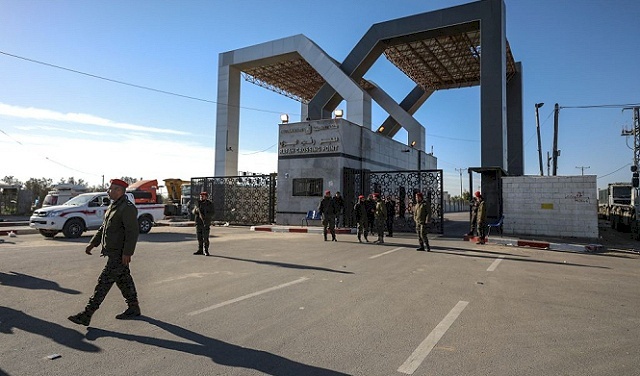
Israel Ties Opening of Rafah Crossing to Return of Prisoners' Bodies.. Rising Tensions in Gaza Despite Ceasefire
SadaNews: Amidst a climate of cautious tension hanging over the Gaza Strip, the Israeli government announced, as reported by the official Israeli radio, its decision not to open the Rafah border crossing, conditioning it on Hamas intensifying its efforts to return the bodies of Israeli prisoners held in its custody.
The Israeli radio quoted a government official stating that Tel Aviv does not intend to proceed with the implementation of the second phase of the ceasefire agreement before recovering the bodies of all the captives, while Hebrew sources indicate that the bodies of 19 Israelis are still being held inside the sector.
This decision comes despite the Ezzedin al-Qassam Brigades, the military wing of Hamas, announcing on Wednesday evening the handover of the bodies of two prisoners killed during the Israeli bombardment, affirming that recovering the remaining bodies requires special equipment and efforts due to the scale of destruction left by the Israeli military operations.
In contrast, international pressure is mounting on Israel to open the crossings and allow humanitarian aid to flow into Gaza. Tom Fletcher, the UN Under-Secretary-General for Humanitarian Affairs, called for the entry of thousands of trucks weekly to meet the urgent needs of the population.
In a related development, the White House announced the start of the second phase of the war-ending agreement, which includes forming an international stability force in the sector. However, U.S. President Donald Trump reverted to a tone of escalation, emphasizing that Israel "can resume fighting in Gaza with just one word" from him, should Hamas not adhere to the terms of the agreement.
Despite this escalation, Trump acknowledged that Israel, "if it were able to completely crush Hamas, would have done so in the past two years," referring to the challenges Tel Aviv faces in achieving its military objectives amid the heavy humanitarian toll left by the recent war.
In light of these developments, the future of the ceasefire remains fragile, amidst mutual accusations between the two parties regarding violations of the agreement, and increasing concerns over the collapse of the fragile international understandings reached to end the fighting.

Mustafa Discusses Latest Developments and Coordination of Joint Positions with Saudi Forei...

Bin Zayed Accepts Trump’s Invitation to Join the Peace Council

Katz: We Will Not Allow Military Presence That Threatens Regional Stability in Syria, Gaza...

Saar calls on the European Union to classify the Revolutionary Guard as "terrorist"

Qatar Rejects Israel's Reservations About Its Role in the Gaza Peace Council

Tairawi Opens Fire: An Open Letter to President Abbas Revealing Corruption Files

The occupation demolishes a house in the southern region of Hebron during its ongoing aggr...

